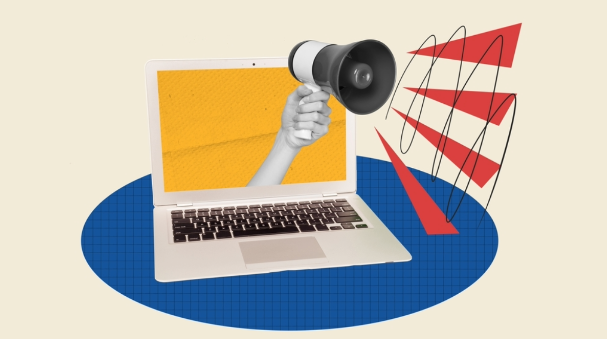Written By: Isaac Julian, Staff Editor
CAUTION: Many people are misled by false news on the internet and should take steps toward becoming more conscious of their media consumption habits.
Everyone is aware that you can’t trust everything you see on the internet. From the first time you went online, your parents likely advised you of this. Yet daily, many people use social media as their primary source of information. Lies run rampant on these platforms, and during election season, now is a better time than ever to learn how to navigate online facts.
Polling suggests that the vast majority of adults in the United States, 86% of them, reported getting their news from their phones, with 57% of them doing so often. This typically comes in the form of social media, with word getting spread by independently-run, personal accounts. Kyle Rodillas (12) shared that he is generally informed through TikTok or Twitter, where he reads the discourse on major events. However, he notes that the discussions on the platforms are undoubtedly biased, with “accounts like Pop Crave” being skewed “far to the left,” or to the right in other cases. Others like Zaden Wright (12) lack even a formal introduction to the news and hear about it for the first time through jokes on the internet or clickbait on YouTube. In any of these scenarios, information is passed on by those who have little credibility and little training to do so well. At best many of us learn about the world in a biased manner, and at worst we are fed deliberate lies.
Before the age of the internet, many people would learn about world events by watching television, listening to the radio, or even reading about it in the paper. Bias has always been present in these spaces, but they have a level of credibility that puts them ahead of social media. Social media has one primary goal above all else: keeping you scrolling. The public primarily uses these apps to keep themselves entertained, or at the very least pass the time. Going from these old practices to the new age of the internet shows a gradual departure from conscious media consumption. Companies are well aware of this shift, and they take full advantage of it. Propaganda, false information, and hate speech run rampant on every online platform, and much of the population is susceptible to it.
Now the problem is identified. How does one proceed from here? There are a couple of ways that you can ensure you’re reading legitimate information. First off, several newspapers report factually and are mostly moderate when it comes to politics. Some of the most credible sources would be The New York Times, The Washington Post, or Beckett Sullivan’s (12) website of choice, The Wall Street Journal. Any of these will give you a much more informative view of world events, produced by some of the country’s most skilled journalists. Not all news outlets can be weighed equally, since even journalism has a spectrum of misinformation. But when navigated correctly, these articles can give the most clarity. If straying away from social media is too large of a change, then the other solution is to be aware of the biases that exist. For every right-leaning account you follow, try to look up a left-leaning account to compare it to. By making yourself aware of every side of the argument, you can come out with your assessment of the situation, not controlled by what you have been told.
As many Poly students slowly reach the age of voting eligibility, it is ever so important to stay aware of the world around them. The internet can spawn echo chambers of harmful viewpoints and ignorance, caused by these same issues of misinformation. It is up to each individual to keep themselves safe in this new age of information, so do your best to stay in the know.

